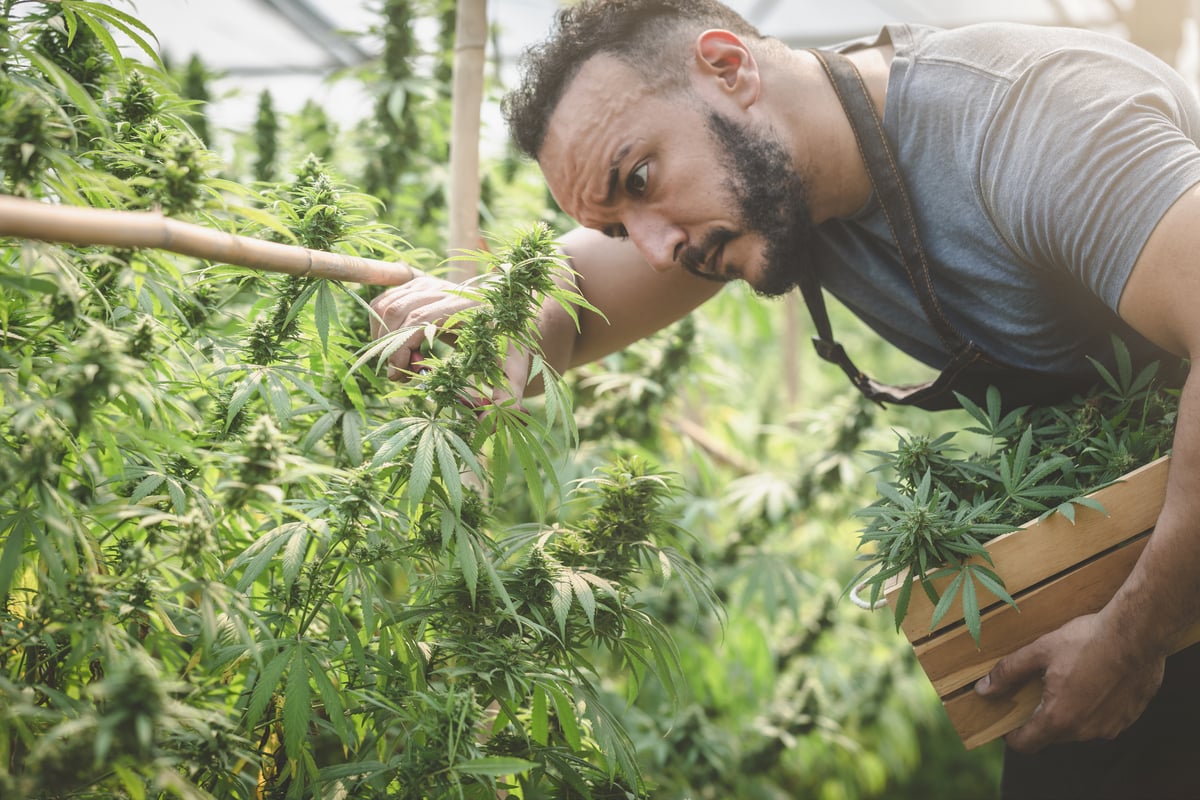Tilray Brands (TLRY +0.66%) just reported its 15th consecutive quarter of positive adjusted earnings before interest, taxes, depreciation, and amortization (EBITDA), but the Canadian company, with operations in the U.S., Europe, Latin America, and Australia, and more than 20 brands of cannabis, is struggling.

NASDAQ: TLRY
Key Data Points
Over the past 12 months, the Leamington, Ontario company's shares have fallen more than 57%. In the second quarter of fiscal 2023, which the company reported on Jan. 9, Tilray said it kept its lead market share in Canada, but revenue through six months was reported as $297.3 million, down 8% year over year. Net income was even direr with the company reporting a loss of $127.4 million, 342% worse than its $28.8 million loss in the same period a year ago. Even though it reported $11.7 million in adjusted EBITDA in the quarter, that's down from $13.8 million in the same period a year ago.
The entire cannabis sector has been down as the possibility for federal approval of cannabis sales, or at least the SAFE Banking Act that would open up traditional financing avenues for cannabis companies in the U.S., has stalled. The company's shares dropped 10.5% the day it released its second-quarter earnings.
How desperate is Tilray's situation? CEO Irwin Simon, on the company's earnings call, said that Tilray, in the short term, may switch over some of its cannabis growing facilities to grow fruits and vegetables.
Tilray has also begun a cost-cutting plan to save $130 million annually by reducing headcount and redundancies in the company.
Building a distribution network, one bottle at a time
While growing produce may smack of desperation, one Tilray project, gearing more of its business toward alcohol sales, may actually bear more fruit, in a manner of speaking.
In November, the company purchased New York craft beer brewer Montauk Brewing Co. and said it plans to expand that company's sales beyond the Northeast. That purchase, along with earlier acquisitions of Atlanta-based SweetWater Brewing Co., the 10th-largest craft brewer in the U.S., and bourbon maker Breckenridge Distillery, has enabled Tilray to diversify its revenue stream while it also builds a distribution network in the U.S. that could one day be used to sell cannabis.
In the second quarter, Tilray said that its alcohol beverage segment brought in $21.4 million in revenue, up 56% over the same period last year. The company's alcohol-related sales were responsible for 14% of the company's revenue through six months, up from 9% a year ago. Chief Financial Officer Carl Merton also said Tilray would likely look for more alcohol company acquisitions. He also said the company is focusing more on developing positive cash flow.
Looking past Canada
Tilray may have its eyes on the U.S., but it is also looking for expanded sales in Europe. In the second quarter, the company reported $60.2 million in distribution revenue from its CC Pharma business in Germany. That number could grow considerably as Germany is expected to open up to recreational marijuana sales sometime in 2024.
In October 2022, the German government said it had plans to allow recreational sales, but it was looking for approval from the European Union. With the region focused on the Russia-Ukraine conflict, legalization efforts may be slowed, however.
Plenty of reasons to be wary
Cannabis companies have been in a tailspin for nearly a year, and with the current price compression in Canada, there's unlikely to be a quick turnaround for Tilray or any Canadian cannabis company.
In a report by Canada's Global News, Brock University professor Michael Armstrong said that oversupply north of the border has led cannabis prices to fall from $7 per gram to $3 per gram in some areas.
Tilray isn't the only Canadian cannabis company that is looking to cut costs. On Jan. 9, Winnipeg, Manitoba-based Delta 9 Cannabis said it was cutting cultivation capacity by around 40% and laying off roughly 40 staff.
Tilray's forays into alcohol could help it weather the storm and, as one of the larger cannabis companies, it has a better chance than some to be one of the survivors. For now, though, no big turnaround seems imminent. Most investors might want to avoid buying Tilray for now, unless they are willing to take the risk and believe in Tilray's alcohol business to keep the company afloat.





